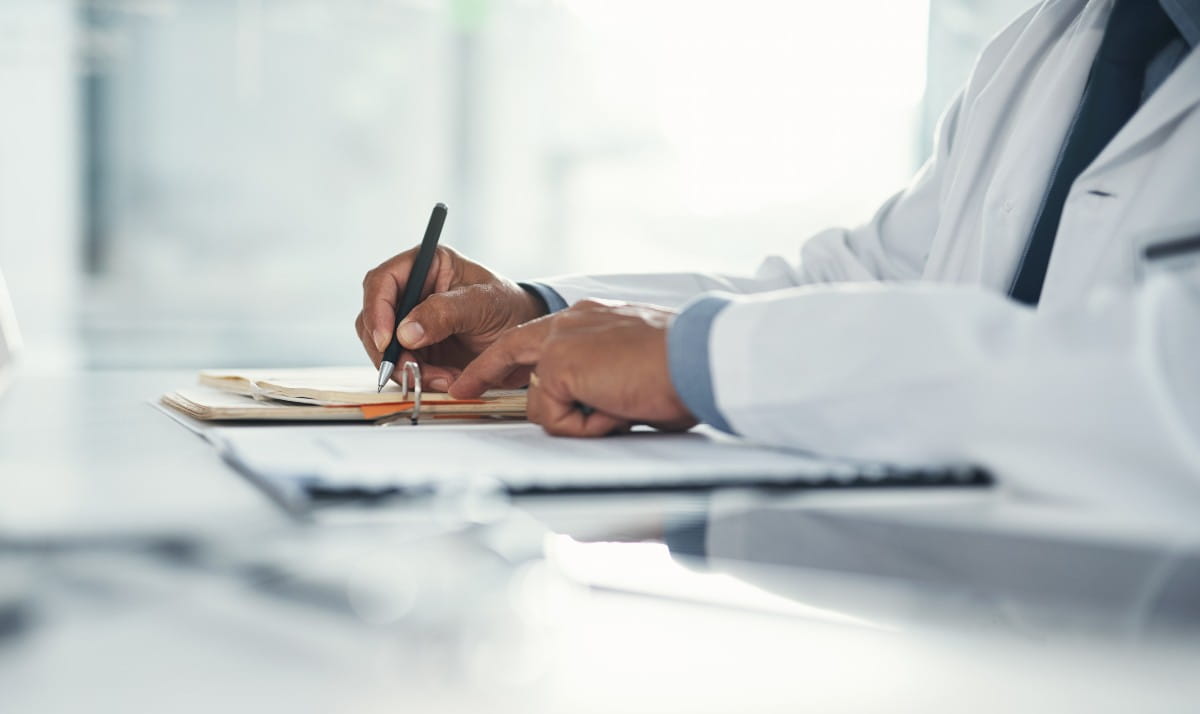High-tech devices count your steps and so much more
Need to lose weight, watch your blood pressure or check your heart rate? Thanks to advances in technology, you can now collect a wide range of information with convenient health wearables.
Wearables are high-tech devices – including smartwatches, fitness bands, cuffs and patches – that track key aspects of your health and well-being, including:
- Blood pressure
- Calories burned
- Heart activity
- Menstrual cycles
- Oxygen level in the blood
- Sleep patterns
- Steps per day
- Stress levels
“When used correctly, health wearables are great motivators to help you exercise more and prevent obesity. You count your steps, set goals and monitor your progress,” says Dr. Stephen Woodall II, a family medicine physician at Riverside Primary Care Midtown. “And beyond fitness, biomedical engineers and researchers are now testing new generations of devices to help diagnose, treat and prevent many other conditions, too.”
Advancing technology to detect an irregular heartbeat
One report of advancing technology comes from the American Medical Association (AMA). Researchers say a novel software algorithm compatible with certain smartwatches and fitness trackers detected irregular heart rhythms and accurately identified undiagnosed atrial fibrillation 98% of the time. The AMA reports that the FDA is currently reviewing this algorithm for clearance and widespread use.
Meanwhile, doctors already use wearable devices, such as Holter monitors, to track their patients’ heart rhythm during everyday activities. “If patients experience chest pain or tightness, they can press a button on the monitor and record their symptoms,” explains Dr. Woodall. “Later, the doctor can find out what was happening with the heart at the exact time the person experienced the symptoms.”
Measuring your blood pressure
Engineers are also trying to perfect the technology for wearable devices that monitor blood pressure. If blood pressure is too high or too low, you risk a variety of health issues, including heart problems, stroke and kidney disease. So, the AMA is working with various groups to maintain a special list of devices, including wearables, that are validated for clinical accuracy.
Diabetes wearables
To make life easier for people with diabetes, medical and technology companies are developing smartwatches and other devices that check and monitor blood glucose levels. Right now, people with diabetes have to collect blood samples each day or use sensors embedded under their skin to monitor their blood sugar.
Wearable safety for children with special needs
Sometimes children with special needs can wander off. If this is a concern, parents can equip their little ones with wearable devices that use global positioning systems. Children can wear these devices as watches or clip them to belt loops. GPS wristwatches can also help keep track of people with dementia issues who tend to wander off adds Dr. Woodall.
Wearable eye technology supports home therapy for kids with autism
Some children with autism spectrum disorder have trouble interpreting other people’s facial expressions – such as when a person is sad, annoyed, surprised or scared. As a solution, researchers are studying the effectiveness of high-tech eyeglasses designed to help children better understand someone’s facial emotions. In the journal JAMA Pediatrics, researchers reported that children who wore the specialized device showed significant improvement in social skills. This wearable eye technology might be helpful for use at home in addition to standard care by professionals.
Wearable devices to correct your posture
Parkinson’s disease, arthritis and other health issues may cause poor posture. According to the National Institutes of Health, innovators are designing wearable devices that can detect problems with spinal posture and provide live biofeedback when people are sitting, standing or walking with poor posture. However, more study is needed to determine whether posture corrector devices will be effective in the long term.
A promising future for health wearables
While much good is coming from health wearables, be aware that the technology is still evolving.
“Not every device on the market is reliable for all people. If you use a health wearable, it’s important to partner with your doctor and discuss your results,” says Dr. Woodall.
The expert providers at Riverside are happy to help monitor all aspects of your health. For your convenience, you can schedule an appointment online with Dr. Woodall or call 757-534-5352.
Related:



